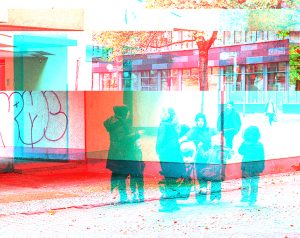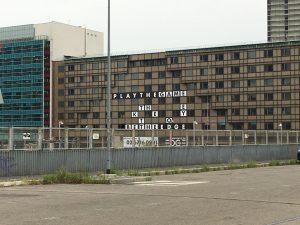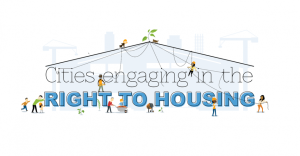Mapping spaces of creativity and resistance
An Urban Reconnaissance workshop with ogino:knauss
Coordinated by Tesserae, Berlin
In November 2019, media artists ogino:knauss and urban research practitioners Tesserae will lead ‘Who Owns Kreuzberg’, a workshop aimed at activists, artists and engaged citizens in Berlin exploring the complexities of urban transformations in the city and tools for co-creative activism.

Taking place over a period of 2 weeks, the workshop has three main objectives:
- To investigate how the identity of Kreuzberg, forged during the last fifty years on a culture of resistance and alternative visions, survives the current pressures of financial capital and real estate developers.
- To test methodologies of critical co-creation in urban territories.
- To place local struggles for space and ownership into an international context and connect them with other global resistance movements.
The workshop will use a process of urban reconnaissance to explore a selected area of the city.Urban Reconnaissance is a trans-disciplinary methodology of investigation of the socio-spatial dimension developed by the ogino:knauss collective. It is based on a set of 64 exercises to explore the complexity of urban territories according to multiple perspectives.
The final outcomes of the workshop will be developed by participants through individual projects which will converge to form one collective, co-created body of work. WHO OWNS KREUZBERG? is realised in the framework of the EU H2020 ‘Cocreation’ project. It is part of a series of three laboratories coordinated by Tesserae in collaboration with community museums in Mexico City, Rio de Janeiro and Berlin, and is aimed at collecting materials for an exhibition dedicated to resistance practices and counter-narratives from marginal territories in the context of global urbanisation.
The workshop will take place at the FHXB Museum in Kreuzberg and will have a special focus on the role of community museums as spaces of organization and creation of alternative historical narratives.
Workshop Program:
First meeting – Monday November 11th, 14:00
Workshop opener: introduction to project and local history, discussion of individual tasks and roles, city walk.
Second meeting -Monday November 18th, 14:00
Mid-workshop review: progress of group on tasks, planning for final presentation.
Third meeting -Monday November 25th, 14:00
Presentation and closing: sharing session & drinks.
The working languages of the workshop will be English and German.
Location:
FXHB Museum
Adalbertstraße 95A
10999 Berlin-Kreuzberg
Registration:
To register please fill the registration form with a brief explanation of why you are interested in joining the workshop.
If you already have an idea for a project that you would like to realise through the workshop please also include an overview text about it or send it via email.
Applications may be in English or German. Participants will be selected based on their engagement with the workshop’s themes and with the city of Berlin.
We want to foster a dynamic, multidisciplinary working environment, including people with a range of professional and non-professional experiences. The workshop is primarily aimed at activists, artists, community engaged citizens and researchers working or living in Berlin, but we are happy to consider participants from any background.
For more information about this workshop and for press contacts please email: info[at]tesserae.eu


